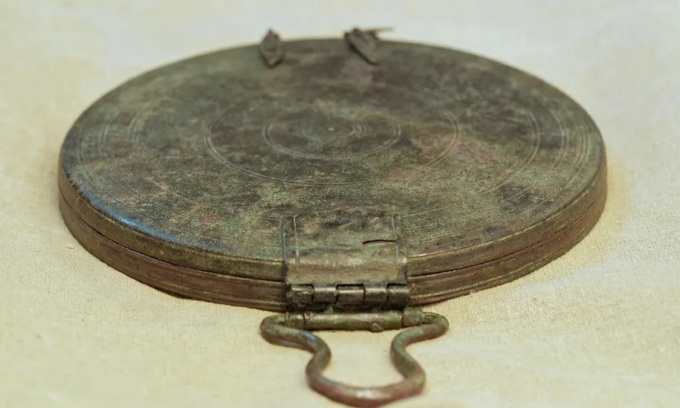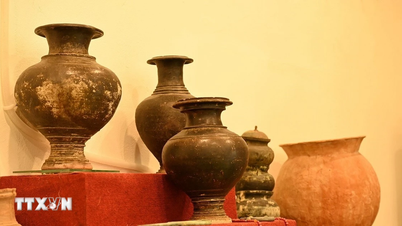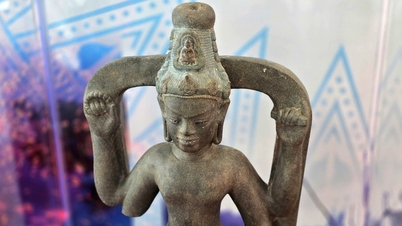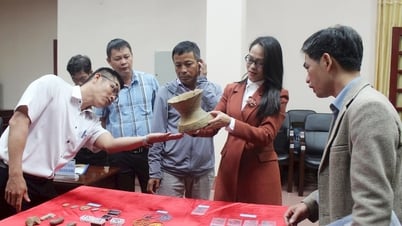Israel Researchers have discovered the ashes of a woman who was likely a high-class Greek courtesan from the time of Alexander the Great.

A bronze box mirror was buried with the woman's ashes. Photo: Emil Aladjem/Israel Antiquities Authority
Along a road in Jerusalem, the woman's ashes were found along with a series of bent iron nails and a rare bronze box mirror in extremely good condition, suggesting that she may have been a high-class prostitute serving a high-ranking Greek official, IFL Science reported on September 27.
Dating from the 3rd or 4th century BC, the tomb is located in a burial cave dug next to a highway in southern Jerusalem. "This is actually the earliest evidence in Israel of cremation in the Hellenistic period," said archaeologist Dr. Guy Stiebel.
“The most interesting question about this discovery is why a Greek woman’s grave is located on the highway leading to Jerusalem, far from any other site or settlement of the period,” Stiebel says. The answer may be revealed by the burial objects, since box mirrors are gender-specific objects, often associated with Greek women.
“The quality of the mirror’s manufacture is so high that it is in such excellent condition that it looks as if it were made yesterday,” explains Liat Oz, an expert at the Israel Antiquities Authority. Expensive luxury items such as this type of mirror were sometimes purchased by Greek women as part of their wedding dowries, although married women usually stayed at home and certainly did not leave Greece.
There is also only one other way such an item could have been received. The box mirror may have been a gift given by a Hellenistic political or military figure to his courtesan, known as a hetaira. Hetaira accompanied generals and officials on foreign campaigns, providing various services, some of which may have involved sex.
According to the researchers, the presence of such an elaborate object next to cremated remains suggests that this was the grave of a Greek woman accompanying a high-ranking member of the Hellenistic military or state. Based on the age of the tomb, it is likely that the hetaira and the person she served traveled to Jerusalem during one of Alexander the Great’s campaigns, or during the War of the Diadochi – a conflict that broke out between Alexander’s generals over succession.
Thu Thao (According to IFL Science )
Source link


![[Photo] Super harvest moon shines brightly on Mid-Autumn Festival night around the world](https://vphoto.vietnam.vn/thumb/1200x675/vietnam/resource/IMAGE/2025/10/07/1759816565798_1759814567021-jpg.webp)





















![[Video] Money appropriation, mental terrorism from fast loan advertisements on social networks](https://vphoto.vietnam.vn/thumb/402x226/vietnam/resource/IMAGE/2025/10/07/1759824972038_green-orange-illustration-modern-e-wallet-facebook-ad-png.webp)

















































































Comment (0)